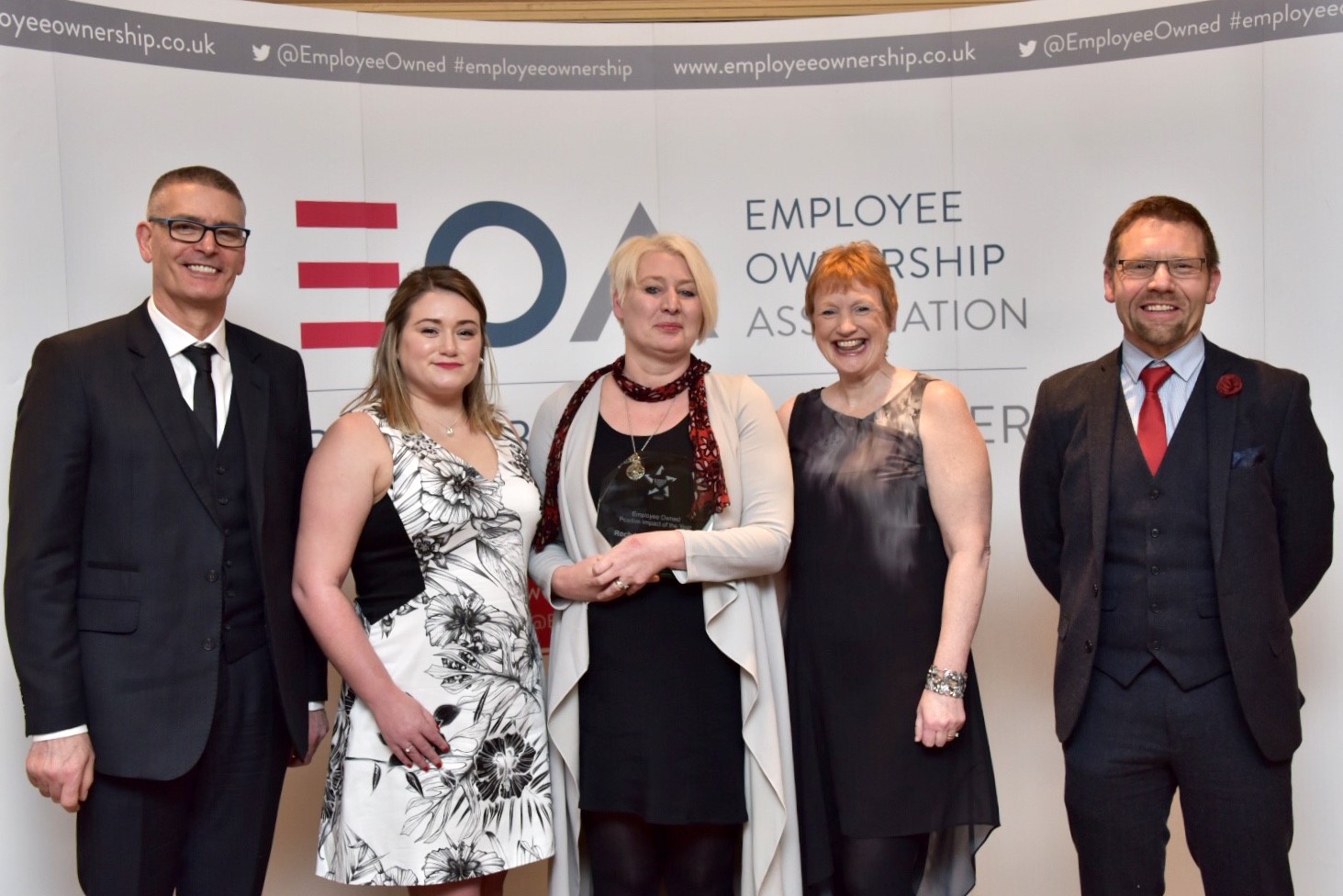The Employee Ownership Association celebrated the sector’s achievements during its annual two-day conference in Birmingham, which also saw the UK Employee Ownership Awards ceremony.
One of the awards went to a mutual housing provider. Rochdale Boroughwide Housing is the winner of this year’s Employee Owned Positive Impact of the Year Award. The mutual, which was the UK’s first tenant and employee co-owned mutual housing society, was also shortlisted an commended in the “employee owner of the year” category.
Awards judge Beth Carruthers, non-executive director, Remploy Ltd, said RBH was chosen for its values.

“The breadth of the work that they do in galvanising the entire community whether employees, tenants or partners in the community is what is making such a difference,” he said.
The Philip Baxendale Fellowship Award was given to Professor Jo Pritchard MBE for his work supporting the transition of hundreds of public sector spinouts. In 2006 he co-founded CSH Surrey, which was the very first employee owned healthcare organisation to serve the NHS. Since then he has been leading the organisation, helping it to grow to 1,500 members.
Another winner was Community Dental Services (CDS), which spun out of the NHS six years ago when more than 70% of its employees voted to become the first wholly employee-owned dental social enterprise in the UK. CDS provides dental services via 36 clinics across eight different counties. It was awarded in the Employee Owned Business of the Year category.
Beth Carruthers said CDS was awarded for its commitment to training, and for the particular examples put forward to show autonomous decision-making.
Community care service provider Here took home the award for the Employee Owned Innovation of the Year. With 150 employees, Here recently redesigned its services to use its ownership model to engage with the people who delivered the service and those who experience the it. The changes enable people with memory problems and their families get support from the point of referral ahead of waiting for a diagnosis.
Anne Segall, Group HR director, BMT Group Ltd, said: “What is impressive is that this innovation has come from an idea from employees, in collaboration with carers, family members and other interested parties, that intrinsically linked to Here being employee owned, which is what made this the judges’ winner.”
The Employee Owner of the Year award went to Lucy Farrow, a consultation and engagement team leader at OPM Group, for being “inspirational, supportive, positive, and passionate”. She was nominated by her fellow employee owners for being a consistent, articulate and passionate advocate for employee ownership values.
This year’s Rising Star award went to Rowlinson Knitwear, which employs 50 people and manufactures knitwear for the schools and corporate wear markets. Iy was praised for engaging not just its employee owners but also its customers.
Over 600 delegates attended the conference where they heard from Hisham Mahmoud, global president and chief executive of Golder Associate, Loren Rodgers, the executive director of the National Centre for Employee Ownership in the US, and Lush founder Mark Constantine.
Deb Oxley, chief executive of the EOA, said: “The employee owned sector is ever more relevant to the UK’s big political and economic challenges of productivity, economic justice, better work, corporate governance reform and spreading wealth and prosperity across the UK.”
A new report by the White Rose Centre for Employee Ownership shows that the employee ownership sector has grown by 60% over the past seven years, with half of this growth happening since 2014.
There are currently around 300 employee owned businesses employing 200,000 people across the UK. Around 50% of these are professional services businesses and 20% manufacturing businesses.
In 2017 they had combined sales of £22.7bn, up by 3% from the previous year and a productivity growth of 6.2%.